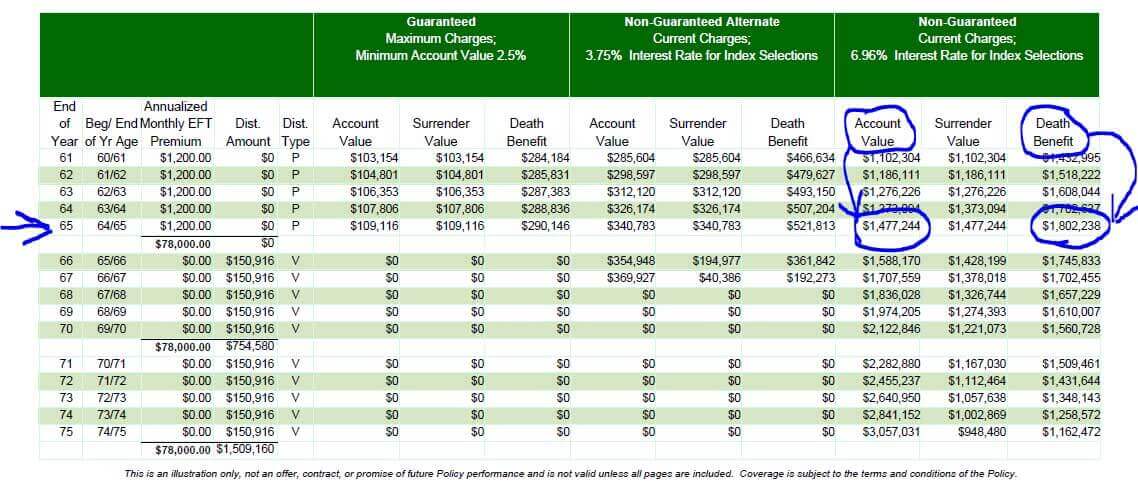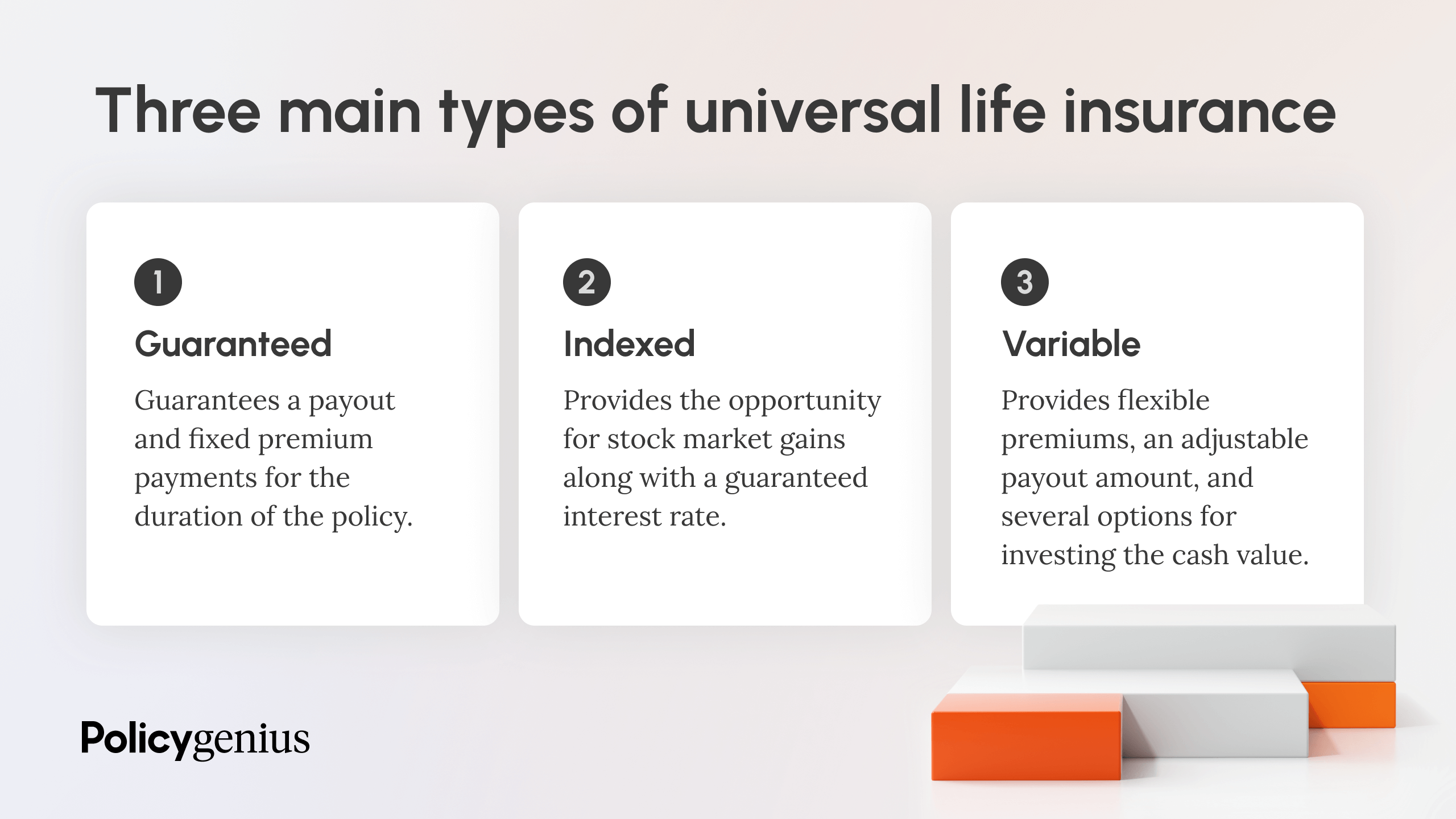All Categories
Featured
Table of Contents
1), usually in an attempt to beat their category standards. This is a straw man debate, and one IUL folks love to make. Do they contrast the IUL to something like the Lead Overall Stock Exchange Fund Admiral Shares with no tons, a cost ratio (EMERGENCY ROOM) of 5 basis points, a turn over proportion of 4.3%, and an extraordinary tax-efficient document of distributions? No, they compare it to some terrible proactively handled fund with an 8% tons, a 2% ER, an 80% turnover ratio, and a terrible record of temporary funding gain distributions.
Common funds commonly make yearly taxable circulations to fund proprietors, also when the worth of their fund has actually decreased in value. Shared funds not only require income reporting (and the resulting annual taxes) when the common fund is increasing in worth, however can likewise enforce income tax obligations in a year when the fund has gone down in worth.
You can tax-manage the fund, collecting losses and gains in order to reduce taxed distributions to the capitalists, yet that isn't somehow going to transform the reported return of the fund. The ownership of common funds might require the mutual fund owner to pay estimated tax obligations (what is indexation in insurance).

IULs are easy to place to make sure that, at the proprietor's death, the beneficiary is not subject to either income or estate taxes. The very same tax decrease strategies do not work virtually too with mutual funds. There are many, often expensive, tax catches connected with the timed trading of common fund shares, catches that do not use to indexed life Insurance coverage.
Chances aren't extremely high that you're going to undergo the AMT due to your common fund distributions if you aren't without them. The rest of this one is half-truths at ideal. While it is true that there is no revenue tax obligation due to your heirs when they inherit the earnings of your IUL policy, it is likewise true that there is no earnings tax due to your successors when they inherit a common fund in a taxable account from you.
Iul Benefits
There are much better means to stay clear of estate tax obligation concerns than acquiring financial investments with low returns. Mutual funds might cause income taxes of Social Safety advantages.

The development within the IUL is tax-deferred and may be taken as tax cost-free revenue using loans. The plan owner (vs. the common fund manager) is in control of his or her reportable earnings, thus allowing them to minimize or perhaps eliminate the tax of their Social Safety benefits. This is wonderful.
Right here's another minimal concern. It's true if you get a mutual fund for state $10 per share prior to the distribution day, and it disperses a $0.50 circulation, you are then mosting likely to owe taxes (most likely 7-10 cents per share) although that you have not yet had any kind of gains.
In the end, it's really regarding the after-tax return, not how much you pay in taxes. You're also possibly going to have more money after paying those taxes. The record-keeping demands for possessing common funds are significantly extra complicated.
With an IUL, one's records are kept by the insurer, duplicates of annual declarations are sent by mail to the owner, and distributions (if any kind of) are totaled and reported at year end. This is also type of silly. Of training course you ought to maintain your tax documents in case of an audit.
Nationwide Indexed Universal Life
Barely a factor to purchase life insurance policy. Mutual funds are generally component of a decedent's probated estate.
Furthermore, they undergo the delays and expenses of probate. The earnings of the IUL policy, on the other hand, is always a non-probate distribution that passes outside of probate directly to one's called recipients, and is for that reason exempt to one's posthumous creditors, undesirable public disclosure, or similar hold-ups and expenses.
We covered this one under # 7, however just to recap, if you have a taxed mutual fund account, you should place it in a revocable trust fund (and even simpler, make use of the Transfer on Death classification) to avoid probate. Medicaid disqualification and life time revenue. An IUL can provide their owners with a stream of income for their whole life time, despite the length of time they live.

This is beneficial when organizing one's affairs, and converting properties to income prior to an assisted living facility confinement. Shared funds can not be transformed in a comparable fashion, and are generally considered countable Medicaid assets. This is another dumb one supporting that poor people (you recognize, the ones that need Medicaid, a government program for the inadequate, to spend for their assisted living facility) must utilize IUL instead of shared funds.
Iul With Living Benefits
And life insurance policy looks awful when compared relatively versus a retired life account. Second, people that have money to acquire IUL above and past their pension are mosting likely to have to be dreadful at taking care of cash in order to ever get Medicaid to spend for their assisted living home expenses.
Chronic and incurable illness biker. All policies will certainly allow a proprietor's very easy accessibility to cash money from their policy, typically forgoing any abandonment fines when such people experience a significant illness, need at-home care, or come to be restricted to a nursing home. Common funds do not supply a similar waiver when contingent deferred sales fees still use to a mutual fund account whose proprietor needs to offer some shares to fund the expenses of such a keep.
Irl Insurance
Yet you reach pay even more for that advantage (cyclist) with an insurance policy. What a terrific bargain! Indexed universal life insurance policy offers survivor benefit to the recipients of the IUL proprietors, and neither the proprietor neither the beneficiary can ever lose cash due to a down market. Common funds supply no such warranties or death advantages of any kind.
Now, ask on your own, do you in fact need or want a death advantage? I definitely do not require one after I reach monetary independence. Do I want one? I intend if it were economical sufficient. Obviously, it isn't low-cost. Generally, a buyer of life insurance policy pays for the real cost of the life insurance policy advantage, plus the costs of the policy, plus the revenues of the insurer.
Equity Indexed Life Insurance Definition
I'm not entirely sure why Mr. Morais included the entire "you can not shed cash" again below as it was covered quite well in # 1. He just wished to repeat the ideal marketing point for these things I intend. Once more, you do not lose nominal bucks, but you can shed genuine dollars, along with face serious opportunity price because of low returns.

An indexed universal life insurance policy owner may exchange their policy for a completely different plan without triggering revenue tax obligations. A mutual fund proprietor can stagnate funds from one shared fund company to another without offering his shares at the previous (hence triggering a taxed event), and buying new shares at the latter, frequently based on sales fees at both.
While it is real that you can exchange one insurance policy for another, the factor that individuals do this is that the initial one is such a terrible policy that also after purchasing a new one and going with the early, adverse return years, you'll still appear in advance. If they were marketed the best plan the very first time, they should not have any kind of need to ever before exchange it and undergo the early, negative return years again.
Latest Posts
Universal Life Insurance Death Benefit Options
Life Insurance Cost Indexes
New York Universal Life Insurance